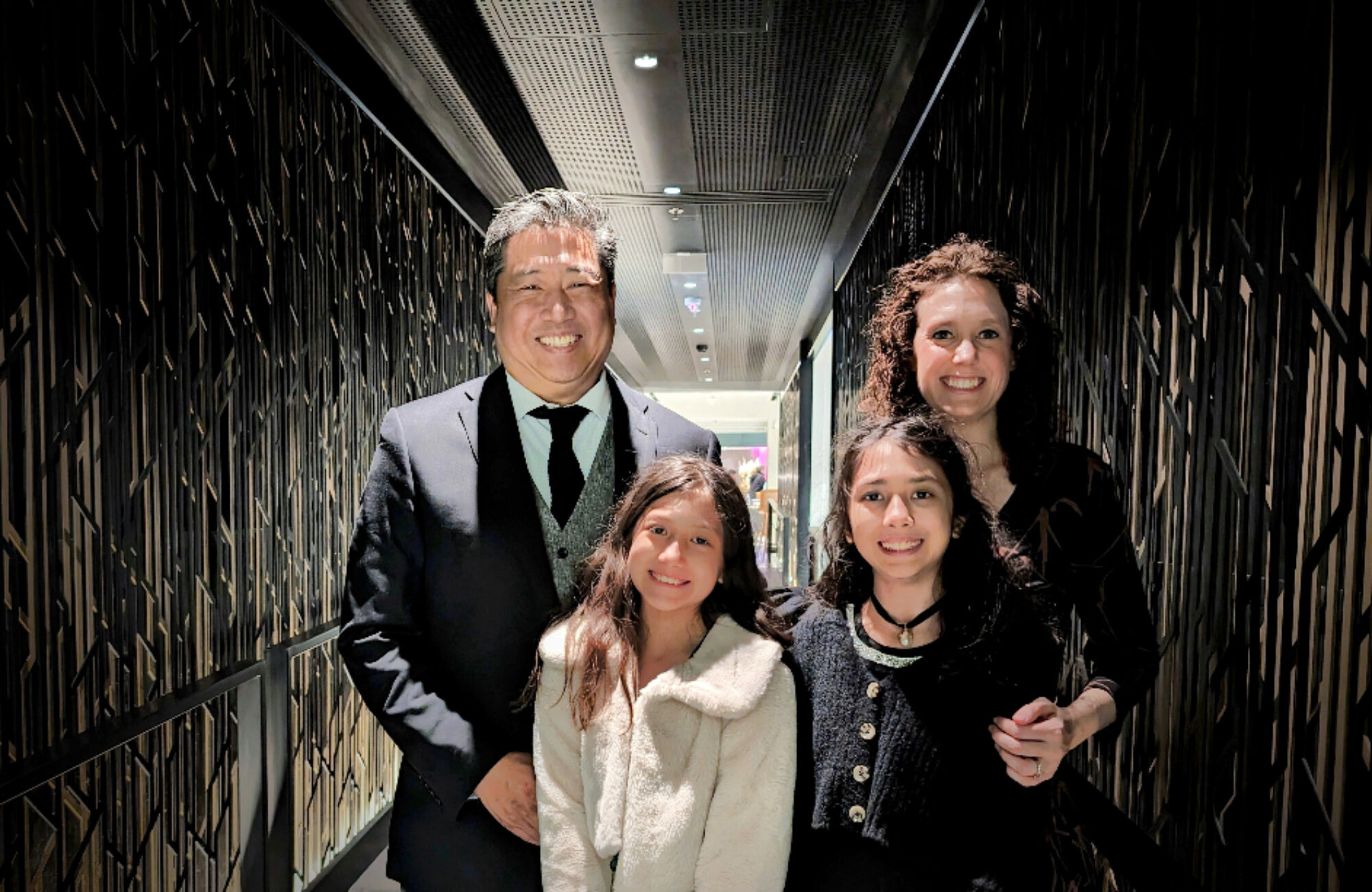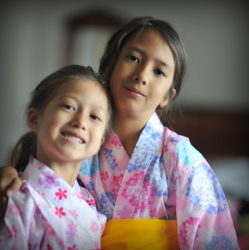June 22, 2004 and January 11, 2005
The quarter is quieter at this time of day. The cobblestones and wrought iron lamp posts, affectations from a previous era, clash with the bright colors of speeding cars in the round. In the café, patrons queue to order their espressos and lattes; they call out their orders over the murmur of conversation and the cappuccino maker’s steam spray lends its noise to create a symphony of sound that is at once familiar and forgotten.
The tables are filled with people. Some are engaged in conversation, some work alone some sit waiting for friends to arrive and still others just sit. A café is a transit station, a waiting room of people passing through their day. It is a place of comfort for some and a place of addiction for others. It is a place to meet people or enjoy a moment in the day; it is a place of romance and break-up. It is as much a transit station of emotion as it is location. Today it was all this and more.
Today, this café, one that he has passed countless times in his days in the round is a place of reckoning and revelation. Once can scarcely breathe as to hope. He thinks.
Hope. A frightening word. A word of suffering.
* * *
“Thank you for meeting me today. I wasn’t sure if you would come.”
“Thank you for asking me. To be honest, I wasn’t sure if I would. You understand the difficulty of this don’t you?”
“I do, which is why I have asked you to come.”
“There are a lot more cars here now.”
“Yes, there are, I remember a time when this was a square rather than a traffic circle. Times change I suppose.”
“Jeremy could not make it.”
“I understand.”
“He is busy you know, he had work to do.”
“That is all right. I am glad you came.”
“Thank you.”
“Can I get you anything? A tea or coffee perhaps?”
“No thanks, I already have some, a latte, see.”
“Ah yes, silly me. I am nervous.”
“That’s funny, I was going to say the same thing.”
“Let us come to an understanding then, let us be nervous and let it be.”
“Agreed. Thank you. You use a handkerchief to wipe your forehead, I didn’t think anyone used handkerchiefs anymore.”
“An old habit. One your mother used to laugh at too.”
“I wasn’t laughing at you…”
“It’s okay, it makes me smile.”
“That’s nice. So, tell me, tell me why we are here.”
“I wanted to get to know you and explain and give you the chance to get to know me too.”
“I already know you.”
“You already know about me, I wanted us to get to know each other.”
“And if I don’t want to?”
“You chose to come today.”
“I did.”
“It must mean you are at least curious.”
“I am. I can admit that.”
“There are things you would like to know. There are things you would like to understand. There are questions you would like to ask. That I would like to ask. Tell me, what would you like to know?”
“I …”
“You want to know why I am here after all these years? Why I might appear all of the sudden? You want to know why I have intruded upon your life and your brother’s life, why we are in the situation we are today…”
“Tell me…”
“Yes?”
“Tell me… do you have a family?”
“Is that what you want to know? I have no family of my own. Quite frankly, I am surprised to have lasted this long. I had firmly decided to die at 60 if I had not married and had children. But that is not what you wanted to ask me. What is it that you want to know.”
“I want you to tell me…“I want to know why you are so important to my mother.”
“Why? I am afraid I can’t answer that.”
“Why not?”
“Because I don’t know myself. That is something that only she can tell you. I can only tell you why she is important to me.”
“I don’t think I care.”
“You may not, young lady, but I do.”
“’Young lady,’ I am almost forty-two.”
“A smile. Thank you. You hardly look forty-two, thirty perhaps, even though if I count, you must be.”
“Thank you.”
“You are welcome. You asked if I had a family. Do you want to know why a man almost eighty never married, never had kids?”
“You do care about her don’t you.”
“I do. More than anyone could know.”
“And you never told anyone?”
“Not till now.”
“Why now?”
“It’s easier to talk about things when you are old. It’s easier to confront things, to look past the trappings and worries. It’s easier dealing with the consequences.”
“Father died ten years ago, why didn’t you say anything then?”
“Being old means it is easier to talk about things. Being old doesn’t mean you stop being stupid. You don’t know what is important until it is time to know. You don’t know what to say until it is time to say. Sometimes it takes a lifetime to say it.”
“I want to know how you met my mother.”
“How we met?”
“I think maybe then, I can find out why you are so important to her.”
* * *
“When your mother and I first met you were already born, and your brother Jeremy before you, though at the time I did not know it. Your mother never wore her wedding ring.”
“She still doesn’t.”
“I never knew why.”
“You never asked?”
“I never asked.”
“I think I know, but I will tell you later. Tell me about you and mother.”
“I met your mother at a conference. The economy had just taken a dive and many people were looking for jobs. Your mother and I worked in different divisions of the same company and met on the floor.”
“And father?”
“I’ve never met your father.”
“You’ve never met…”
“I’ve never even talked to him once.”
“Why?”
“I don’t know. Afraid perhaps.”
“Afraid of what?”
“The military, martial arts and even medicine teaches you to dehumanize your enemy, opponent or patient so that you do not become too emotionally involved. Once you begin to understand your opponent, humanize then, relate to them, it becomes more difficult…”
“I don’t understand.”
“I am afraid I am complicating things, what I am trying to say… You would think my age would let me not be embarrassed when talking about life. It goes to show you that we are human at any age.”
“It’s okay, I want to know.”
“Well, quite frankly, I never went out of my way to talk to you, your brother, or your father because it would humanize you and make you real, when I wanted nothing more for it to be just your mother and me.”
“It seems a little obsessive.”
“I guess it would be, if something had happened, instead, it is for me a life of wishing.”
If you ask your mother though, she would tell you we met earlier.
I was never more lonely than when I turned 35. Having met your mother and realizing that happiness was not meant for me in this lifetime. I couldn’t help as if I were in hell.
I ascribe too much to the absence.
If something had happened between us that left me feeling this way, it would have been better. Instead, I was left pining away for what could have been rather than what was.
When they talk of meeting someone and “just knowing;” imagine just knowing and not being able to do anything about it.
Chemistry and comfort.
How does this happen?
Society is such that you are not supposed to be attracted to attached people, much less married ones. Indeed, if you are religious there is a commandment. Your mother never wore her wedding ring. I am not sure why, and before I knew she was married, it was too late, and I was already caught up in her company.
Finding a park bench, I put my face in my hands and watch the wetness dot the concrete sidewalk.
What is hope anyway? I posit to you that hope itself is evil. Wait, hear me out on this. Being hopeful is good, but hope itself is evil. Hope brings the possibility of joy and disappointment. It is the willingness to risk to be happy. It is of course a risk.
The question you have to ask yourself is whether the goal is to be happy or content? Where to draw the line in ambition?
In Pandora’s Box, Pandora is given a box but told not to open it. The temptation to open it is greater than if she were just given the box with no instruction. The anticipation is higher. Curiosity getting the better of her, she opens the box, sees what is inside and frantically shuts the box but not before she lets loose to the world all the evils, disease, and pestilence. As the story goes, what remained in the box was hope. Doesn’t it stand to reason that if everything else in the box was evil, that hope must be too?

